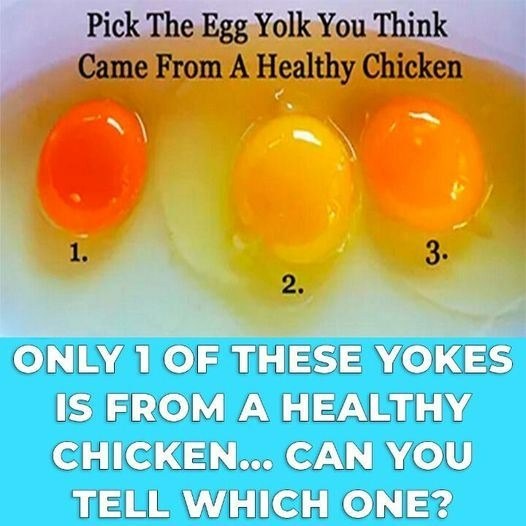Eggs are a staple in almost every kitchen, whether you’re cooking breakfast, baking a cake, or preparing a savory dish. They’re versatile, nutritious, and can elevate a meal when used correctly. However, not all eggs are created equal. Choosing high-quality eggs can make a significant difference in taste, texture, and nutritional value. So how do you know if the eggs you’re buying are top-notch? With a few simple tips, you can easily identify the best eggs and ensure you’re getting the most out of this essential ingredient.

The Importance of Yolk Color
When you crack open an egg, the first thing you’ll notice is the color of the yolk. Many people assume that a standard yellow yolk means the egg is healthy, but did you know that the color of the yolk can vary depending on the chicken’s diet? Understanding these differences can help you select eggs that not only taste better but are also healthier for you and your family.
Chickens that are fed nutrient-rich diets produce eggs with more vibrant yolks, and the color can provide clues about the quality of the egg. While yellow yolks are common, a brighter orange yolk often signals that the egg is packed with more vitamins and minerals. So, it’s worth paying attention to yolk color when shopping for eggs.
Free-Range vs. Store-Bought Eggs
There are generally two types of eggs you’ll encounter at the store or farmers market: eggs from free-range chickens and eggs from commercially raised chickens. Store-bought eggs, particularly those from large-scale commercial farms, usually have pale yellow yolks. While these eggs are safe and nutritious, they’re not always the best choice in terms of taste and nutritional density.
In contrast, eggs from free-range chickens or chickens raised on smaller farms tend to have yolks that are more orange. This is a sign that the chicken had a varied, nutrient-dense diet, which results in better eggs. Free-range chickens often have access to grass, insects, and other natural food sources that enrich their diets, leading to healthier, tastier eggs. So if you have the option, always opt for free-range eggs for superior quality.
Why a Bright Orange Yolk Matters
You might be wondering why the color of the yolk is such a big deal. It turns out that a rich, bright orange yolk is a sign of an egg’s nutritional value. Chickens that eat a balanced, nutrient-rich diet produce eggs with more vitamins, such as Vitamin D, Vitamin E, and Omega-3 fatty acids, all of which are crucial for your health.
Eggs with orange yolks are often described as having a richer, creamier taste, making them ideal for dishes where the flavor of the egg really shines, such as scrambled eggs or homemade pasta. In short, an orange yolk is a visual cue that the egg is packed with flavor and nutrition. So, when you’re selecting eggs, remember: orange yolks mean healthier chickens and better eggs.
What About Dark Yolks?
Occasionally, you might crack open an egg and find a yolk that’s unusually dark. While this might seem concerning at first, darker yolks aren’t necessarily a sign of poor quality or an unsafe egg. However, they can indicate that the chicken’s diet wasn’t as nutrient-dense as it could have been. Darker yolks may suggest the chicken didn’t have enough access to fresh greens or other enriching foods.
If your goal is to find the most nutritious and flavorful eggs, it’s best to seek out eggs with bright orange yolks. These are a sure sign that the chickens were well-fed, and their eggs are more likely to be packed with the vitamins and minerals your body needs.
Making Informed Choices for Better Meals
By simply paying attention to the color of the yolk, you can make more informed decisions when buying eggs. The next time you’re at the grocery store or farmers market, take a closer look at the eggs you’re purchasing. If possible, crack one open and see what color the yolk is. Bright orange yolks are your best bet for eggs that are full of flavor and nutrition.
Choosing eggs from healthy chickens not only benefits your taste buds but also supports ethical and sustainable farming practices. Free-range and pasture-raised eggs often come from farms where chickens are treated better and have access to healthier, more natural diets. The result? Eggs that are better for you, better for the environment, and better for the animals that produce them.
In conclusion, healthier chickens lay better eggs, and by following these simple tips, you can ensure that you’re choosing the best eggs for your meals. Whether you’re whipping up a quick breakfast or preparing a gourmet dish, selecting high-quality eggs can make all the difference in taste and nutrition. So, next time you’re buying eggs, remember to look for that vibrant orange yolk—it’s the mark of a truly superior egg!





